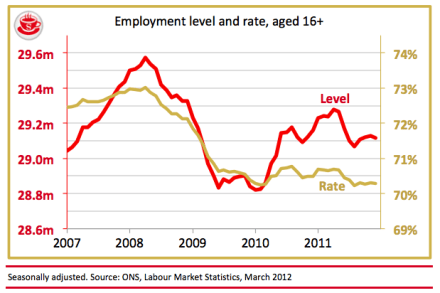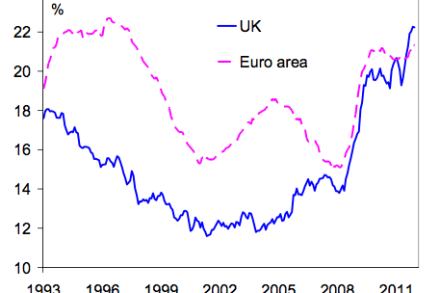Good jobs news goes against grain
Ministers are generally cautious in welcoming falls in unemployment in case they represent a blip for just one quarter. But Iain Duncan Smith was pretty chipper this morning when the Office for National Statistics announced a fall in the jobless stats for the fifth quarter running and the strongest employment rise since the middle of 2010. In the three months to June 2012, 29 million people were in work, up by 201,000 on the previous quarter. The employment rate rose by 0.4 per cent to 71 per cent, and there are 4,000 fewer unemployed young people. The number of unemployed people fell by 46,000 to 2.56 million. As the graph































